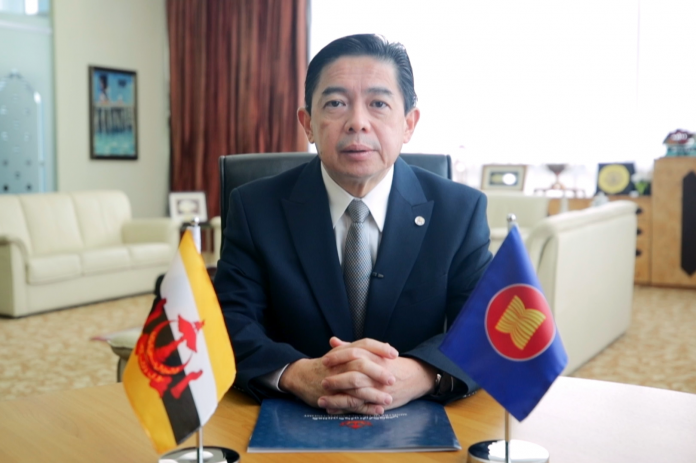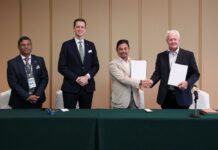
The startup ecosystems of ASEAN and the Republic of Korea (ROK) can collectively form a cooperative community that has the potential to become a driving force in the global economy, said the Second Finance and Economy Minister and Minister at the Prime Minister’s Office.
In the keynote address at the inaugural ASEAN-ROK Startup Festival hosted virtually by Darussalam Enterprise (DARe) yesterday, YB Dato Seri Setia Dr. Awg Hj Mohd Amin Liew Abdullah said an ASEAN-ROK startup community can be fostered through three strategies: education and exchange; policy and regulatory improvements; and investment and mutual growth.
ROK has been one of ASEAN’s earliest dialogue partners, with the ASEAN-ROK Commemorative Summit held in 2019 marking 30 years of relations. At this summit, 11 programmes – including the startup festival – were proposed under an ASEAN-ROK Startups Partnership, which would be championed by the ROK’s Ministry of SMEs and Startups (MSS), and the ASEAN Coordinating Committee on Micro, Small, and Medium Enterprises.
Earlier in April, after undertaking the ASEAN–ROK Startup Ecosystem Research Report which identified development gaps, MSS announced the ASEAN-ROK Startup Policy Road Map Project to inclusively build up the regional ecosystem through exchange and collaboration.
YB Dato Dr Hj Mohd Amin said a collective online platform to enable information exchange, networking, and investment between startups should be established, while policy makers should focus on improving cooperation policies, research, and share sandbox insights for countries to effectively develop regulatory responses.
“For our startups to benefit, we need to begin talks of sharing skilled resources, strengthening trade agreements, improving startup visas, and facilitating an investment support system that would allow for ease of venture capital investing,” he said.
The minister added that funding into capacity building initiatives as well as investments will also be crucial, and called for the setting up of an ASEAN-ROK Joint Investment Fund and joint accelerator programmes.
Pandemic accelerating technology adoption
Much of the five panel-based discussions hosted by the festival touched on on how startups, ecosystem builders, and investors are operating amidst the pandemic, and what new technologies and trends will be shaping the increasingly interconnected global economic landscape.
YB Dato Dr Hj Mohd Amin said that the influence of technology on the global economy was already gaining momentum prior to the pandemic, but its onset last year has exponentially increased technology adoption, which many startups are actively leveraging.
“Relatively smaller businesses were able to grow faster through a combination of sheer creativity, a flexible and fast approach to decision-making and the ingenuity to utilise technology, which has led to more startups challenging larger companies successfully for market share,” he said.
ASEAN is increasingly becoming a hotbed for entrepreneurship; there are now 35 unicorns in ASEAN – startups who have crossed US$1 billion in valuation – 19 of which were created in the last year.
Singapore’s Action Community for Entrepreneurship Chairman James Tan said the surging trend of unicorns in ASEAN can be traced back to the foundations laid by national ecosystems a decade ago. The discovery of the region’s initial unicorns has created a snowball effect in recent years, creating positive sentiment and subsequently increasing the appetite to invest in startups.
Total capital investment into ASEAN startups has increased more than 50 fold in every year in the past decade. Over the past year, more than US$6 billion was invested, with fintech, food and logistics drawing the most attention.
“Most of these investments (in unicorns) had their gestation, their initial start about 10 years ago. Most of the ones (unicorns) that were created last year were because of the influx of funding going into newer companies (those younger than 10-years-old) because of the excitement the world has for the potential and possibilities of ASEAN,” said Tan.
“There is a lot of attention from private equity funds (into ASEAN startups) and that includes venture capital funds looking at Southeast Asia, so it really will be an opportunity for us to lose if we do not tap into it.”
The ASEAN-ROK Startup Festival drew over 300 participants and saw more than 35 startups, ecosystem builders and investors present and join panel discussions. The event was held to showcase promising startups as well as promote collaboration and the exchange of information amongst startup ecosystems within ASEAN-ROK.
Watch: Opening session of the ASEAN-ROK Startup Festival











